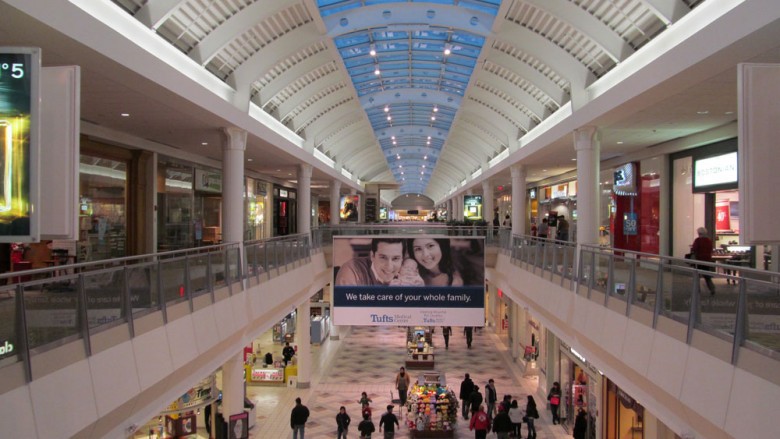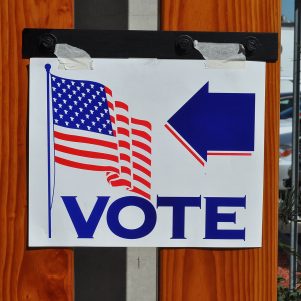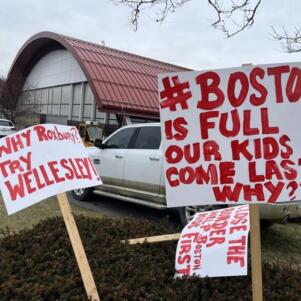Tax holiday knocked as “gimmick”
By State House News Service | July 22, 2015, 8:23 EDT
 courtesy
courtesy Written by Matt Murphy
STATE HOUSE, BOSTON The Massachusetts Legislature still appears likely send to Gov. Charlie Baker a bill establishing a sales tax holiday for one weekend in August, but an increasing number of lawmakers are coming to view the annual vote as an example of good politics trumping good policy.
Every year since 2004, with one exception in 2009 at the height of the recession, lawmakers on Beacon Hill have approved a two-day holiday for shoppers in the late summer to avoid paying the state’s now 6.25 percent sales tax on items like back-to-school supplies, dishwashers or a new computer.
This year appears to be no different, with House and Senate leaders indicating a likely vote next week on a bill to set the weekend of Aug. 15 through Aug. 16 as the sales-tax-free weekend. Last year, the holiday resulted in $24.6 million in foregone tax revenue to the state, with consumers avoiding that aggregate tax.
Yet, with lawmakers considering $162 million in vetoes made by Baker to the annual state budget and services such as substance abuse treatment, transportation, and higher and early education crying out for more resources, some are giving the incentive a second thought.
“The more I hear about the sales tax holiday, the more I’m opposed to it,” said Rep. Alan Silvia, a Fall River Democrat. Silvia said he would have difficulty supporting the holiday this year given the money needed across the state to fight opiate abuse.
“There’s too many other needs. It’s a gimmick,” Silvia said.
The Joint Committee on Economic Development last week recommended a bill to establish the sales tax holiday weekend in four weeks, and it was referred to the House Committee on Ways and Means.
Rep. Joseph Wagner of Chicopee and Sen. Eileen Donoghue of Lowell, the co-chairs of that committee, support the bill, and the Retailers Association of Massachusetts argues the holiday could boost sales among Massachusetts businesses by $168 million.
Citing a study done for the association by the Beacon Hill Institute, the retailers say the holiday will also add 627 to 860 new fulltime jobs in Massachusetts, and increase disposable income by $37 million.
But at a hearing before the Revenue Committee on Tuesday where a number of bills pertaining to the sales tax holiday were up for review, including proposals to make the tax-free weekend a permanent fixture on the calendar, no one showed up to testify.
Committee co-chairs Rep. Jay Kaufman, of Lexington, and Sen. Michael Rodrigues, of Westport, both oppose the sales tax holiday, which they say diverts tax dollars away from important public services without generating any new commercial activity.
“I have been a long-time opponent of the sales tax holiday and I will continue to oppose it and I will almost certainly lose,” Kaufman said.
Kaufman said he doubts the public would be as excited as they are for a sales-tax holiday if their favorite store announced a 6.25 percent sale for one weekend in August.
“It will be this year as it has in the past a victory of politics over policy,” Kaufman said. “The idea of sticking it to the man holds a certain amount of appeal and I guess I don’t share that appeal, and as the man it’s my job to keep our focus on what the cost is of that, and that $25 million is that much less in public services.”
Rodrigues, who owns ABC Floor Covering in Westport, called the holiday “irresponsible” because the loss of revenue has not been accounted for in the state budget, and said instead of incentivizing new spending at local businesses it simply “shifts habits.”
“It’s a good piece of feel-good legislation to pass right before we take our August recess,” Rodrigues said, predicting the bill will pass despite increased opposition among his colleagues this year.
House Speaker Robert DeLeo has backed the holiday in the past. Both DeLeo and Senate President Stanley Rosenberg appear willing to allow the bill to move forward, and Rosenberg offered up the fact that the public has come to expect the holiday as his best rationale for passing the bill.
Sen. William Brownsberger, a Belmont Democrat, wrote on his blog over the weekend indicating that he was reconsidering his past support for the sales tax holiday, which he said had seemed like a “good will gestures worth making.”
Brownsberger, indicating he is now leaning against supporting the measure this year, said he has found evidence to suggest some retailers charge higher prices or offer smaller discounts than they might otherwise, limiting the benefit to consumers. He also said the increased sales over the holiday weekend may only reflect a shift in business, rather than new economic activity.
“Holidays are festive and I am not by nature a grinch. That’s why I’ve voted for the holidays despite the arguments above. But I’m giving it a second thought this year. Your thoughts? ” Brownsberger wrote.
Many commenters to the post agreed with the senator’s critique of the sales tax holiday.
The holiday also has its backers in the Legislature. Senate Minority Bruce Tarr filed the legislation that has become the vehicle this year for the Aug. 15-16 holiday, even though he initially proposed eliminating the element of surprise and making it a permanent annual event.
“While its (sic) certainly no substitute for the lasting relief of a reduction in the sales tax rate, an annual sales tax holiday is an important way to help parents fit school clothes and other supplies into tight household budgets, while encouraging others to make larger purchases locally that might otherwise happen out of state and without any benefit to local retailers,” Tarr said in a recent statement.
Rep. Cory Atkins, a Concord Democrat, testified before the Revenue Committee on Tuesday against the sales tax holiday and in favor of repealing sales tax exemption on candy, soda and airplane sales.
“I’m a shopper. I shop online. I shop in stores. Anyone who pays full price is a fool. So I look for bargains, and 6.25 percent never got me to buy anything,” Atkins said, arguing the revenue being lost to unnecessary tax exemptions could help fund the MBTA and school building assistance.
“I’ve almost got you $100 million bucks with three simple things,” Atkins said.
@COPYRIGHT STATEHOUSE NEWS SERVICE











